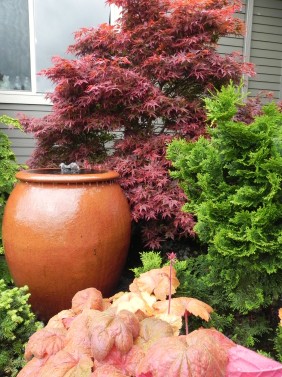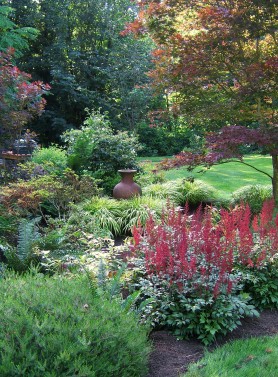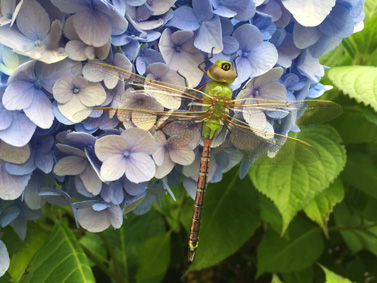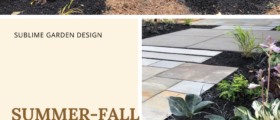Successful Gardening Through Soil Health and Nutrition
A successful garden takes planning but it doesn’t have to be overwhelming. Start with selecting the best plants for your gardens conditions, then you work to get it established with proper care and watering. Once you get the garden going the big questions come…
Do I need to fertilize? What do I use and when?
Some gardeners NEVER fertilize while others schedule their fertilizing routines with great regularity. Liquid, slow release, organic and synthetic fertilizers line the shelves of garden centers. With so many options it’s hard to know what product is right.
I wish I could say ‘use this product and your garden will thrive’! Unfortunately there is no one easy choice for all of our gardens. Many factors affect the choice: type of soil, type of plants, nutrients already present and soil health.
No matter what type of soil you have or what plants you are growing you can find success by creating healthy soils in various ways. Healthy soil equals healthy plants!
The first step in creating healthy soil is to get it off the chemicals. Using synthetic fertilizer and pesticides may feel like a quick fix but they can kill off beneficial soil organisms.
Ideally our soils are a robust healthy ecosystem of organisms that can make our jobs easier: improving the structure, keeping pest populations in check and ‘feeding’ our plants by breaking down organic matter and cycling nutrients in the soil.
One of the many ways we can help support this ecosystem is by adding mulch, organic matter and nutrients to support it. Adding organic fertilizer, compost or woody chips are all good options for our soil. These materials will be broken down by the soil organisms and support healthy plant growth for our plants. Here’s a breakdown on each:
COMPOST
- Can be worked into the soil or used as a topdressing
- Breaks down fairly quickly so you may want to re-apply annually
- Good source of nutrients
- Helps soil retain moisture, reducing need to water
- Apply anytime (we prefer late winter or early spring when we’re doing our garden cleanup)
WOOD CHIPS (Arborist Chips)
- Use as a topdressing in beds that you don’t work regularly (don’t work into soil)
- Breaks down slowly, only need to apply every few years
- Not a source of readily available nutrients
- Retains soil moisture and helps prevent weed seeds from germinating
- Apply anytime after you’ve removed weeds from the area and watered well
ORGANIC FERTILIZERS
- Good to add to ‘heavy feeders’ (lawns, vegetable gardens, flowering annuals…)
- Does not directly benefit soil moisture or prevent weeds
- Can help get deficient soils back on track as indicated by a soil test
- Apply as weather begins to warm in April-June (2nd application in summer for heavy feeders may be required)
SOIL TESTING
Before applying any fertilizers we highly recommend a soil test to better understand what your soil needs. Spend your dollars wisely and only apply what your soil really needs. Types of soil test vary and can give you basic information or a detailed report. Information can include: pH, basic nutrients/minerals, soil type and amount of organic matter.
Fees can range from $20 up to $70 to get recommendations along with the results. A test like this is ideally done during a renovation of a garden or lawn but can also help you get the highest yields out of your vegetable garden. (Check out Black Lake Organic in Olympia for in depth soil interpretation and recommendation services)
February is a great time to send samples off for soil testing so you are armed and ready with information to start the growing season off right. In the mean time start your spring cleanup with some weeding, pruning and mulching.
Check back next month for details on fertilizing and caring for your lawn.
Organized under Garden Maintenance, Garden Tips & Advice, Low Maintenance Gardens. Labeled as fertilizer, mulch, organic gardening, soil test.






Pingback: Spring Turf Care: Maintenance vs. Renovation | Sublime Garden Design | Landscape Design & Landscape Architecture - Serving Seattle, Snohomish County and East King County